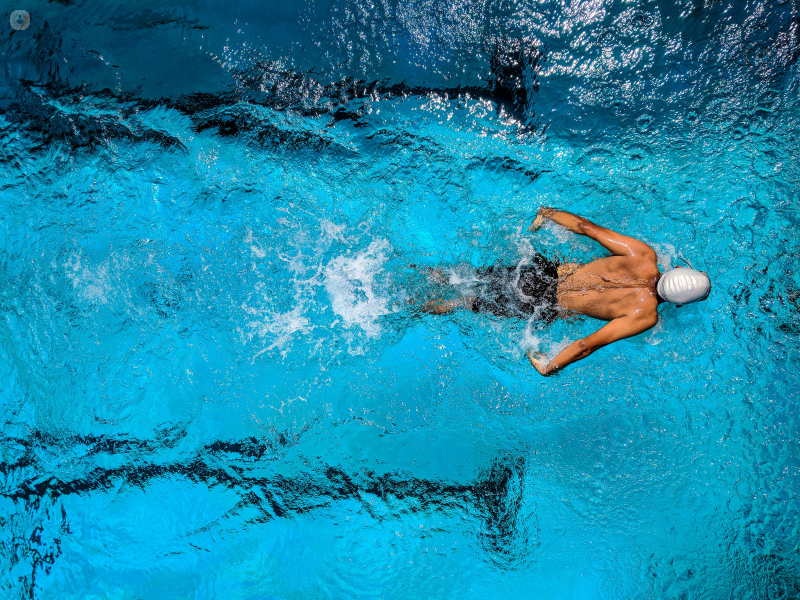What sports can I resume following a knee replacement?
Written by:For decades, patients who underwent knee replacement surgery were advised to restrict physical activity and just focus on getting back to walking pain-free - any type of sport was simply out of the question.
Nowadays, however, as knee implants and techniques have greatly improved, all that has changed and patients are now more eager than ever to know when they can return to competitive sports and are curious to test the boundaries of their new knee.
So which sports are safe to resume after a knee replacement? Mr Jonathan Walczak, one of our top consultant orthopaedic and trauma surgeons explains.

What sports are safe to play after a knee replacement?
Generally, there is no restriction once you recover from your knee replacement, which can take up to three to six months. Many people don’t feel comfortable kneeling for more than brief periods, but any form of sport that doesn’t cause significant pain or swelling is permitted. I have even had patients who have run marathons with knee replacements and that's not what everyone would normally expect!
On the whole, people are comfortable playing golf, bowls, gym, swimming and racket sports and some can return to football, netball, hockey and rugby; although again, I say any activity which is not causing pain is acceptable.
Can an athlete continue to play competitive sports following a knee replacement?
Athletes can continue to play competitive sports but they will certainly be a little compromised compared to their peers with normal knees.
For people who want to return to athletic sports, they should focus on working on their flexibility, balance, strength, and proprioception during the rehabilitation period, as well as focusing on their diets. This will help to build muscle and bone, and thereby improve the joint replacement outcome.
Are high impact sports advised against?
I wouldn’t advise against high impact sports if that is your preference, but it will, in theory, wear out the knee replacement a little bit quicker.
Which is the best sport for the rehabilitation period?
The best sport for rehabilitation is one that works upon a range of motion, strength and stability. In general, it is recommended to stay as active as you can as it helps to:
- Strengthen your knee muscles
- Maintain a healthy weight
- Relieve stress
The types of exercises that will help do this include:
- cycling
- swimming
- walking
- low resistance weightlifting
- various gym work, such as squats, lunges and cross-training
You should continue doing the exercises prescribed by your physiotherapist and playing sports shouldn’t be used as a substitute.
What benefits does a knee replacement provide to the patient?
The benefits of a knee replacement are that 90% of people would have a significant reduction in pain, usually from a pre-operative pain of 8 out of 10 to 1 out of 10. Overall, it offers the patient a huge improvement in their quality of life and there are even many people who are completely pain-free after having a knee replacement. Recent studies have shown that in contrast to the popular belief that they only last for 10 years, 80% are still going strong at 25 years.
Those who are very active feel there is still a little bit of pain but it is much easier to manage than before without painkillers and isn't a big intrusion upon their life.
Mr Jonathan Walczak is a highly experienced consultant orthopaedic and trauma surgeon based in London and South East England. To make an appointment with him, visit his Top Doctors profile and check his availability.


